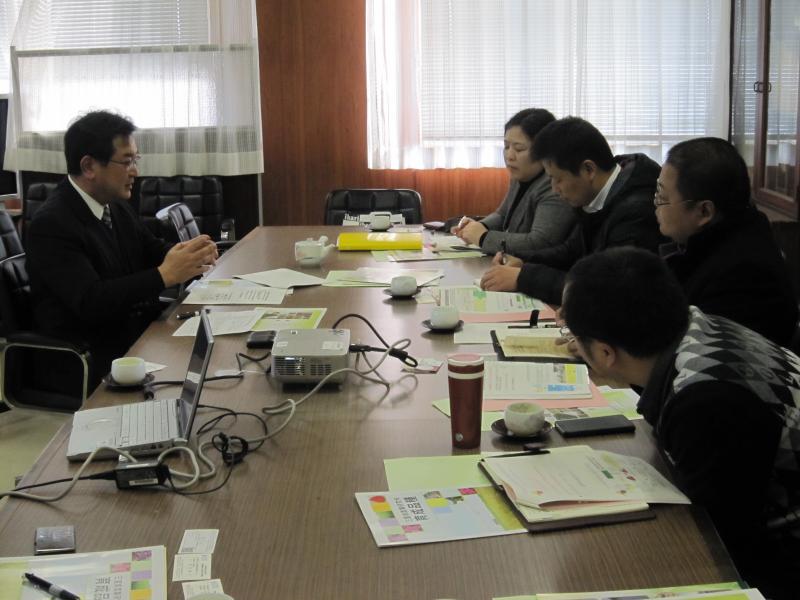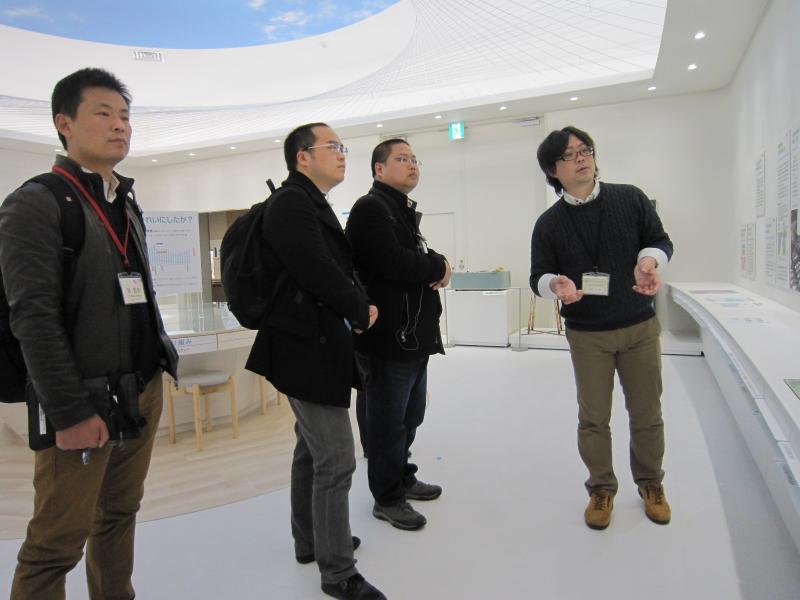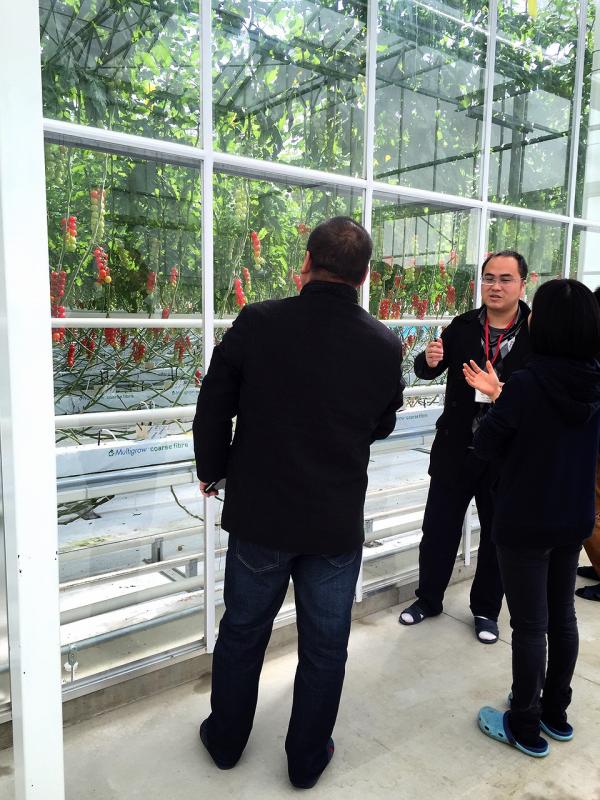Home > Workshop and Training > IN JAPAN > Fiscal Year 2015 > Japan-Asia Youth Exchange Program in Science (SAKURA Science Plan) Takes Place
Main content starts here.
Update:September 9, 2016
Japan - Asia Youth Exchange Program in Science (SAKURA Science Plan)Takes Place
Background
Under the sponsorship of the Japan Science and Technology Agency (JST), the Japan-Asia Youth Exchange Program in Science, or SAKURA Science Plan, aims at promoting exchanges between Asian and Japanese youths through short-term visits to Japan. Aged 40 and younger, the participants will play a crucial role in the future. ICETT arranged an eight-day exchange program for the agency on eco-friendly agriculture and waste recycling, while inviting three university lecturers from Sichuan Province, China.
Outline
1) Duration : February 28 (Sun.) to March 6 (Sun.), 2016
2) Participants : three university lecturers from Sichuan Province, China, who specialize in agriculture and livestock industries and waste recycling
3) Contents :
In the first half of the program, the Chinese participants visited Mie University and Mie Prefectural Government to learn about the Japanese legal systems concerning agriculture and livestock industries. In Japan, not only food production is regarded as important in agriculture. One of the serious agricultural issues these days is the increasing number of idle fields. Already, countermeasures against this are taken while support systems for farmers are being established. The countermeasures also aim at retaining the fields’ functions in controlling floods, stabilizing river flow, and maintaining a sense of mental well-being among residents near farm land. There were lively exchanges of opinions about the differences between the agricultural system in Japan and that of China, which puts importance on agricultural yields.
They also went to the Mie-Kita Office of JA, the Japan Agricultural Cooperatives, and learned about how JA works to support farmers in all aspects of their lives, how it gives instructions on various matters such as using compost to fertilize farmland, and how much the environment is affected by agricultural chemicals. The participants showed great interest in how Japan maintains agricultural activities by offering assistance to farmers.




Even though it was a short-term stay in Japan, the Chinese participants completed a fulfilling eight-day program thanks to enthusiastic cooperation by the relevant institutions they visited. They went home with comments, saying that they would like to develop a system to help continue exchange programs in the future, while sharing what they had learned in Japan with Chinese experts in Sichuan Province.
ICETT would like to express its gratitude to all the parties who cooperated in the program.







